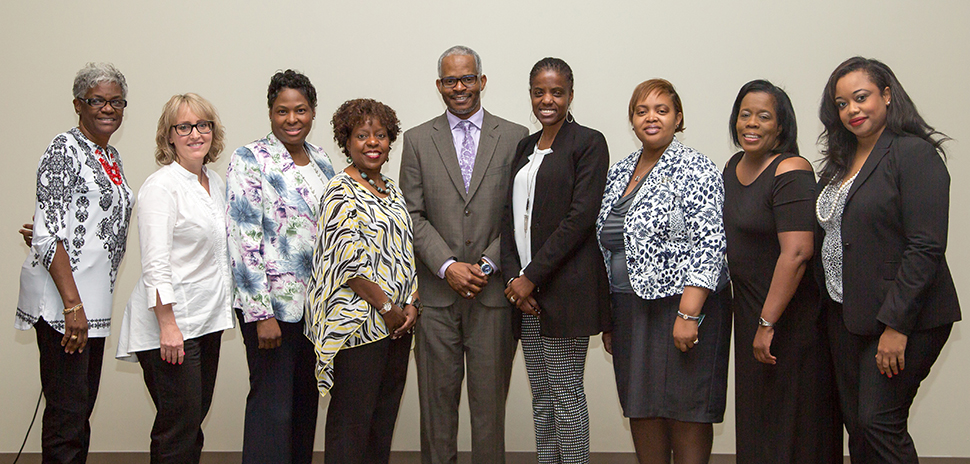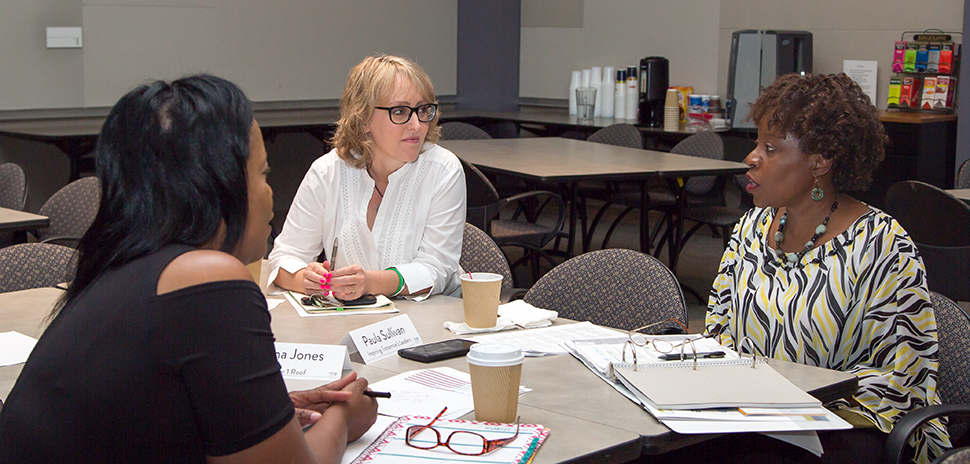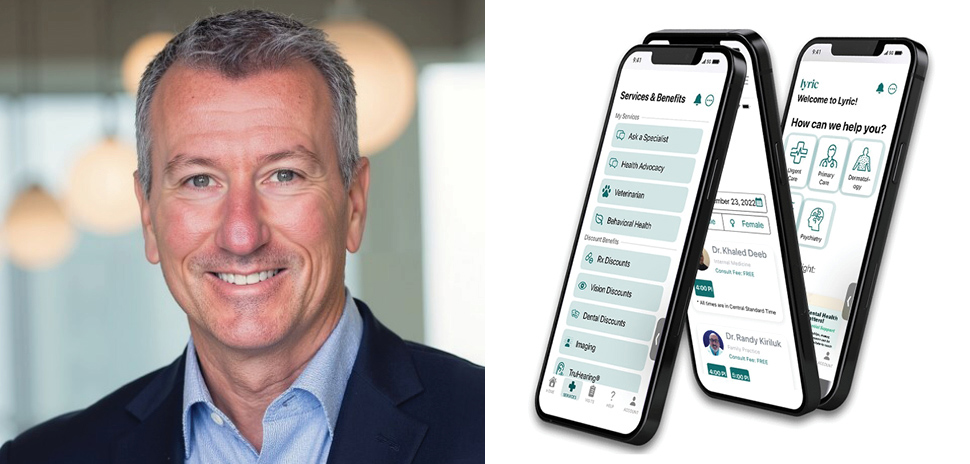When Inspiring Tomorrow’s Leaders started in 2011, priorities were on cultivating its mission of workforce and leadership development and building the nonprofit’s structure.
Then, like many other budding nonprofits, focus rested mostly on helping clients.
“We did all those things at a very embryonic stage, and then our heads are down doing the day-to-day, doing what we love, and ensuring that we are giving back,” said Paula Sullivan, executive director of Inspiring Tomorrow’s Leaders.
This year, Sullivan and leaders of nine other South Dallas nonprofits are getting much-needed time to step back and think about the growth of their organizations.
“Those organizations do fantastic work, but often times just do not have the infrastructure to take it to the next level.”
Susan Hoff
The infrastructure building is part of a pilot program led by the United Way of Metropolitan Dallas, University of North Texas at Dallas, and the State Fair of Texas.
“Lots of real work happens in neighborhoods with those neighborhood-focused organizations,” said Susan Hoff, chief strategy and operations officer at Dallas’ United Way. “… Those organizations do fantastic work, but often times just do not have the infrastructure to take it to the next level.”
Many don’t meet the requirements to receive funding from United Way and other large funders. One common road block is an annual financial audit, which smaller organizations don’t have the thousands of dollars to spend on each year.
GIVING NONPROFITS THE TOOLS TO SUCCEED
During the six-month Non-Profit Infrastructure Initiative, executive directors from the selected service agencies will meet at United Way for group trainings designed to help them scale up their organizations and increase impact. They’ll be evaluated on their progress using a capacity survey developed by McKinsey & Co.
A baseline assessment taken during the program kickoff in January, revealed the participating nonprofits scored highest on culture and aspirations while
It’s hard to teach passion, but things such as communication and fundraising development can be learned behaviors, Hoff said.
“I think by building that infrastructure and helping people plan you can actually focus on how you can get at the root cause of solving some of our problems instead of just trying to respond to them,” she said.
NPII evolved from Community Engagement Day, which unites nonprofits annually to collaborate, network, and learn from each other. The State Fair, UNT-Dallas, and World Vision have been holding the event for five years.
“Out of that they really started thinking how could we build a better cohort because one day wasn’t creating the impact that they wanted,” said Nissy New, director of income impact at Dallas’ United Way.
New said United Way decided to partner with the university and State Fair to build a more extensive, longer-term program.
So far, NPII has included sessions on mission/vision, change management, and understanding assets in the community. Upcoming trainings will focus on fundraising and board governing. Leaders from United Way, UNT-Dallas, State Fair, or external partners such as Communities Foundation of Texas take turns teaching.
“The curriculum was based on [the nonprofits’] needs and what they felt like would take them to the next level of funding and sustainability,” New said.
Cornerstone Crossroads Academy executive director Kristi Lichtenberg said the education has been eye-opening and given her a new perspective on sustainability.
After a session evaluating assets, Lichtenberg realized her nonprofit school, which helps older teenagers earn high school diplomas, relies heavily on connections outside of its 75215 ZIP Code.
She wants to change that.
“The last couple of weeks, what’s been really transforming for me and my staff is really evaluating how we look at our neighborhood and our immediate community as networks of support,” she said.
LEARNING TO COLLABORATE
Lichtenberg admitted her original interest in NPII centered on the $5,000 stipend participants would receive upon competition, but after three months of programming that’s not her main focus.
“I can see through just the relationships in this room and in our community, we already have a lot of what we need if we could just work together and share resources and ideas,” she said.
Relationship building was one of the things organizers hoped nonprofits would receive from the program.
“I can see through just the relationships in this room and in our community, we already have a lot of what we need if we could just work together and share resources and ideas.”
Kristi Lichtenberg
“It’s a relief when you absorb the fact that your organization doesn’t have to meet all the needs of the clients that you love,” Lichtenberg said. “… We can do what we do well, and entrust them with other organizations who are going to treat them with dignity, respect, and longtime relationships.”
At the conclusion of the program, New said nonprofits will have a chance to receive up to $10,000 in capacity building investment from the United Way.
There will also be a pitch day in July allowing the nonprofits to present their needs to other funders, Hoff said.
In the future, Hoff sees the potential to impact other areas, but for now efforts will remain in the southern sector.
“I think right now we will probably keep the focus on southern Dallas just because I think there’s a lot of work to do there,” Hoff said.

Leaders from nonprofits participating in the infrastructure-building pilot program. [Photo courtesy of Hari Chan/United Way of Metropolitan Dallas]
Here’s a list of the 10 participating nonprofits:
Cornerstone Crossroads Academy
Braswell Child Development Center
T.R. Hoover Community Development Corporation
Delivering what’s new and next in Dallas-Fort Worth innovation, every day. Get the Dallas Innovates e-newsletter.


























